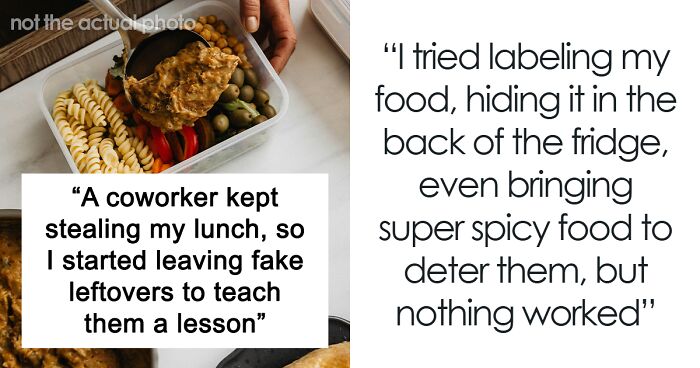How to Deal with a Lunch-Stealing Coworker: My Creative Solution with Fake Leftovers

Coworker Kept Stealing My Lunch, So I Started Leaving Fake Leftovers To Teach Them A Lesson
Source: Bored Panda
Overview of the Situation
An individual faced repeated incidents of lunch theft at work, which led them to devise a plan for petty revenge by leaving fake leftovers in hopes of teaching the thief a lesson.
Responses from Experts
- Dr. Tessa West (Psychologist, NYU): Stresses that food theft leads to workplace stress and violates social norms, breeding mistrust.
- Dr. Peter J. Robertson (Professor, USC): Emphasizes the broader implications of food theft, including issues of trust and fairness in the workplace, which could affect morale and productivity.
Impact on Workplace Culture
Food theft can create a toxic environment where employees feel unsupported and demotivated. Established norms of respect are crucial for maintaining a cooperative workplace.
Expert Recommendations
- Supervisors should address food theft seriously to foster a fair workplace.
- Direct confrontation may be more effective than passive-aggressive strategies involving food.
Community Reactions
Comments from the community reflect a shared experience with lunch theft, showing understanding and support for the individual’s actions while acknowledging the challenges of workplace dynamics.
Conclusion
The story serves as a reminder of the impacts of seemingly minor workplace issues like lunch theft on overall employee morale and productivity, highlighting the need for respect and accountability in workplace interactions.




